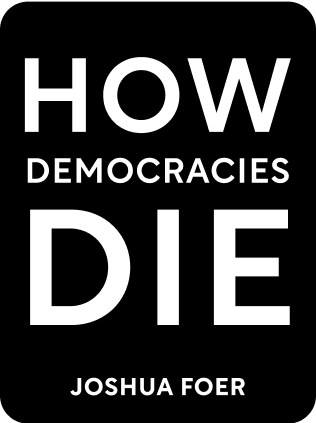

This article is an excerpt from the Shortform book guide to "How Democracies Die" by Steven Levitsky and Daniel Ziblatt. Shortform has the world's best summaries and analyses of books you should be reading.
Like this article? Sign up for a free trial here .
Who was Hubert Humphrey? How did Humphrey secure the Democratic Party nomination for the president without competing in the primaries?
Hubert Humphrey served as the 39th vice president of the United States under Lyndon B. Johnson’s administration. In 1968, Hubert Humphrey became a nominee of the Democratic Party, despite him not having completed any primaries. According to political scientists Levitsky and Ziblatt, Hubert Humprey’s nomination is what prompted the call for the reform of the old presidential nomination system.
Here’s why Humphrey’s nomination was such a blow to the old party system, according to Levitsky and Ziblatt.
Hubert Humphrey’s 1968 Nomination
Levitsky and Ziblatt argue that this old party system began to decay in the 1970s, when both the Democratic and Republican parties changed their rules governing presidential nominations. They date the beginning of this process to the turbulent events of the 1968 Democratic National Convention in Chicago.
Party delegates, deeply divided over the Vietnam War, entered the convention with no clear consensus on who the nominee should be, as no candidate had secured a majority of delegates during the primaries. At the convention, party insiders installed Vice President Hubert Humphrey—a candidate perceived as being pro-war because he served in the incumbent Lyndon B. Johnson administration—as the nominee, despite him not having competed in any primaries. The authors contend that rank-and-file delegates, many of whom were bitterly opposed to the war, took Humphrey’s nomination as a deep betrayal.
But this was to be the last such presidential nomination carried out in this fashion. At a time when people were taking to the streets to protest the Vietnam War and popular candidates like the recently slain Robert F. Kennedy had helped open the door to a more representative form of party politics, the installation by a handful of party insiders of Humphrey at the top of the ticket was no longer considered acceptable.
According to the authors, the circumstances under which Humphrey was nominated dealt a crushing blow to the old party boss system and prompted calls for reform.
| Hubert Humphrey: Party Reformer? Although Levitsky and Ziblatt describe the perception of Hubert Humphrey in 1968 to be that of a stodgy political insider, he actually spent much of his career fighting for the expansion of political representation and for the enfranchisement of politically powerless minorities—often despite bitter opposition from Democratic Party insiders. A staunch liberal, Humphrey was one of the party’s early pioneers in the fight for civil rights. At the 1948 Democratic National Convention, Humphrey shocked the political world (and outraged Southern Democrats) by delivering a floor speech in which he called for the Democratic Party to abandon the cause of “states’ rights” (by which Southern Democrats rationalized the disenfranchisement and segregation of African-Americans) and instead embrace the cause of human rights. The reaction from the South’s party leaders was swift and fierce. Southern delegates bolted the convention and nominated their own candidate, Strom Thurmond of South Carolina, under the banner of the States’ Rights Democratic Party. |

———End of Preview———
Like what you just read? Read the rest of the world's best book summary and analysis of Steven Levitsky and Daniel Ziblatt's "How Democracies Die" at Shortform .
Here's what you'll find in our full How Democracies Die summary :
- How shared norms are essential for preserving democracy
- Why the Trump presidency threatened those shared norms
- Why democracy goes beyond individual leaders and parties and must be a shared enterprise among committed individuals






